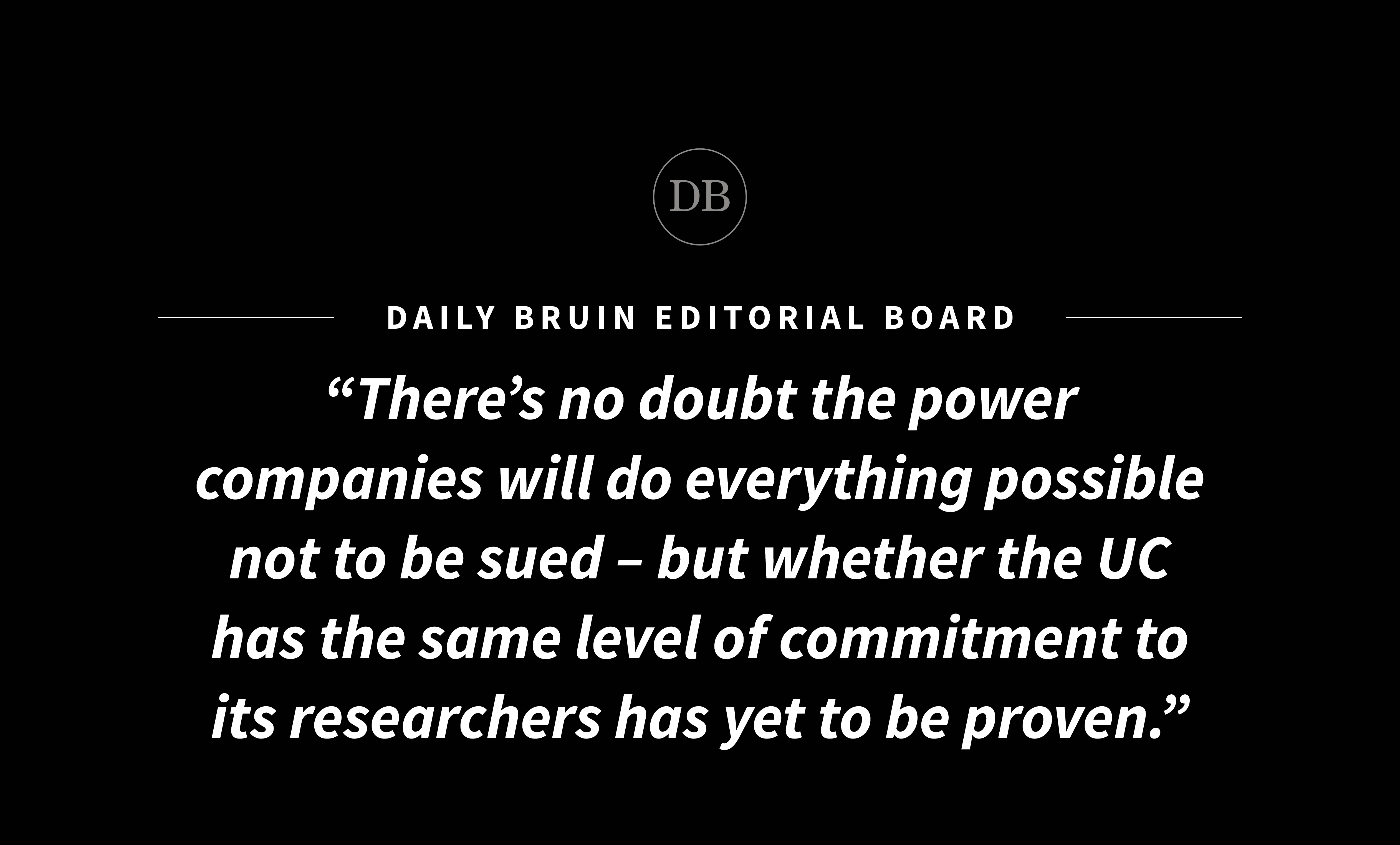Editorial: Power outages at UC Berkeley provide lesson to UC of need to protect research

By Editorial Board
Oct. 20, 2019 10:01 p.m.
The impacts of California wildfires have spread beyond the places they typically burn down.
Now, even research is at risk – something the University of California is sorely unprepared for.
Pacific Gas and Electric Company, a main utility in Northern California, shut off power in areas with high winds at the beginning of the month for five days, in order to ensure that sparks wouldn’t fly off its equipment. These mass outages came after about $30 billion in liability has been expected to be incurred by the 2017 and 2018 Northern California wildfires. Sure, this protects PG&E from facing further liability for causing wildfires – but not without causing problems for people and institutions that rely on electricity.
And compared to what happened two weeks ago, “problems” sounds like an understatement.
When PG&E announced it would be shutting off power for almost a week, people across Northern California were thrown into a panic – specifically, researchers at UC Berkeley. Refrigerators and freezers containing research samples slowly warmed due to the lack of power. Research was destroyed. Graduate dissertations were derailed.
And while Berkeley has some backup power facilities, they weren’t available to most.
The UC needs to be better prepared for emergencies like this because they will only become more common. Buildings containing valuable research should have dedicated backup power systems, the same way hospitals like Ronald Reagan UCLA Medical Center do. There’s no doubt the power companies will do everything possible not to be sued – but whether the UC has the same level of commitment to its researchers has yet to be proven.
Without more than a few generators, the results have shown to be devastating.
Sarah Morris, a Ph.D. student in the UC Berkeley lab, researching therapies for drug-resistant cancer, said that up to $500,000 worth of research – two years’ worth of work – may have been lost as a result of the power outage.
While it might seem like an overreaction to a one-time power outage, it’s important to remember that this won’t be a one-time thing. PG&E will continue to take extreme cautions in order to avoid wildfire liability, given the billions it is already facing. And its Southern California equivalent will likely do the same.
Southern California Edison notified regulators just this week that it may have been responsible for the still-burning Saddleridge Fire, which has burned nearly 9,000 acres, destroying 19 buildings and damaging 88 since Oct. 10, as of Saturday. As a result, SCE is currently considering shutting off power to about 45,000 people in Los Angeles, San Bernardino and Santa Barbara counties, among others.
Because it had no backup power, the Olzmann lab at UC Berkeley arranged to have its freezers moved in trucks to UC San Francisco, where power was still available. But, when these outages hit the whole state – which they likely will – the nearest UCs will be dark too.
The lights could go out, even here at UCLA. UCs all over the state are at risk of losing valuable research, and the University has a responsibility to ensure that each of its campuses has the facilities to provide backup power during emergencies.
The university may be a research institution, but without power, it won’t be doing much come next fire season.

